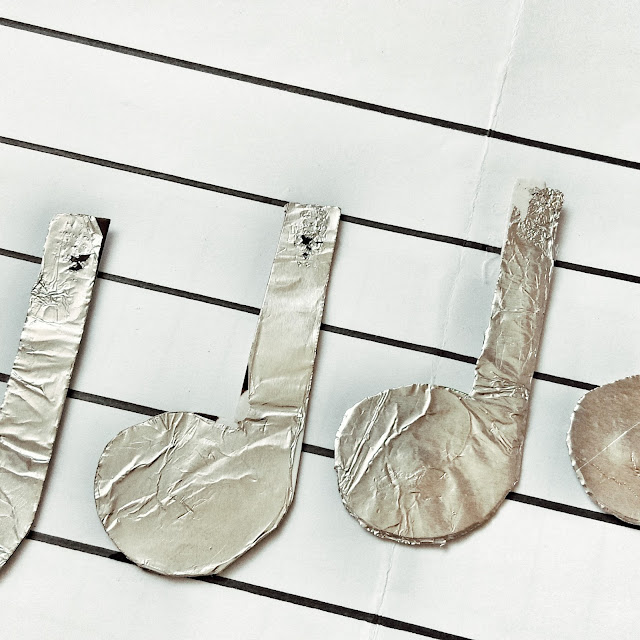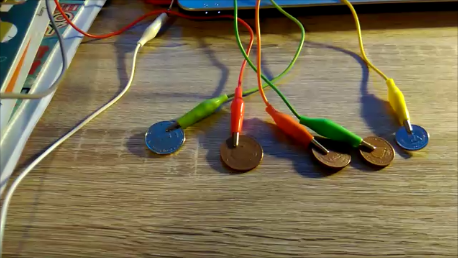Round 3 - If the notes could speak
These tin foil notes are starting to look a little worse for
wear but I have finished the final cycle of my project and it is almost time to
for them to be retired! They have been used over 100 times by my students, too
many times to count by me as I worked out how to make the various sections of
the game, a few times by my music teacher friend and also by my husband, parents,
sister and nieces who all wanted to have a try. I made them in Bosnia and
Herzegovina but they have traveled with me to Croatia and to the UK. They have
quite the story to tell and now it falls to me to tell it in just 2000 words!
Before I get my head down to writing up the project here are some thoughts about the third cycle of the project and the
third version of the game.
If you have been following this blog you will know that the
second version of the game I made was too hard for my students and they didn’t
really enjoy playing it. They came up with a suggestion of how to make an
easier level and so this week we have been trying it out and seeing if it
really is easier or not!
Looking at the score results, the average score for this
cycle is 36.6 up from 31.4 for the second cycle so perhaps we could conclude
that the game is now slightly easier. But as I have said before, the scores don't show the whole picture. I also need to consider what my students said when I interviewed them after playing the game.
During the previous cycle 5 out of the 8 students that tried
the game said that it was too hard. This week only one thought it was too hard out
of the 11 that played. None of them thought it was easy, although several of
them commented on the fact that the first level is now really easy because they
have played it so many times. The consensus was that the new level was just
hard enough to make it interesting but not so hard that it was impossible.
I have mentioned Csikszentmihalyi and the concept of flow in
previous posts.[1] Flow
is an optimal experience which takes place when a person’s body or mind is
stretched to its limits as they work to accomplish something difficult or
worthwhile.[2] For
flow to occur the right balance of challenge and skills must be found as shown
in this diagram.[3]
During the last cycle the game was too hard, my students
didn’t have the skills needed to meet the challenge and there was no sense of
flow as they played the game. They were frustrated and demotivated.
This week for most of them the sense of flow returned. One
student said,
‘it is still a bit
hard… but if it was easier it wouldn’t be as interesting.’
Another commented,
‘The 2nd
level is not so hard that you can’t get any right answers but it is not really easy
either. It’s half and half.’
The return of the sense of flow can also be seen by looking
at the enjoyment ratings my students gave the game this week and during the
previous cycle.
[2] Brown, Music Technology and Education
[Electronic Resource], 23.






Comments
Post a Comment